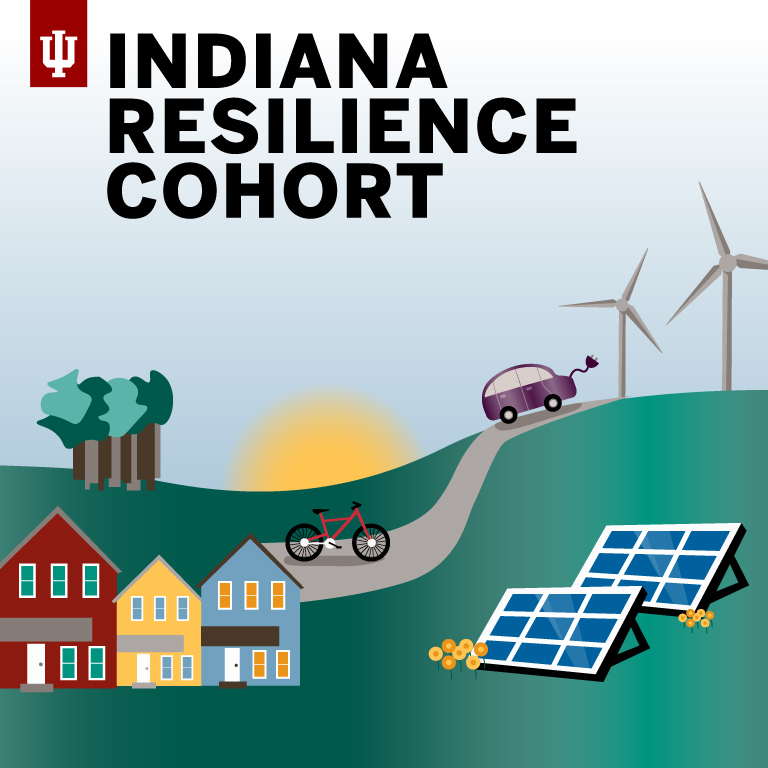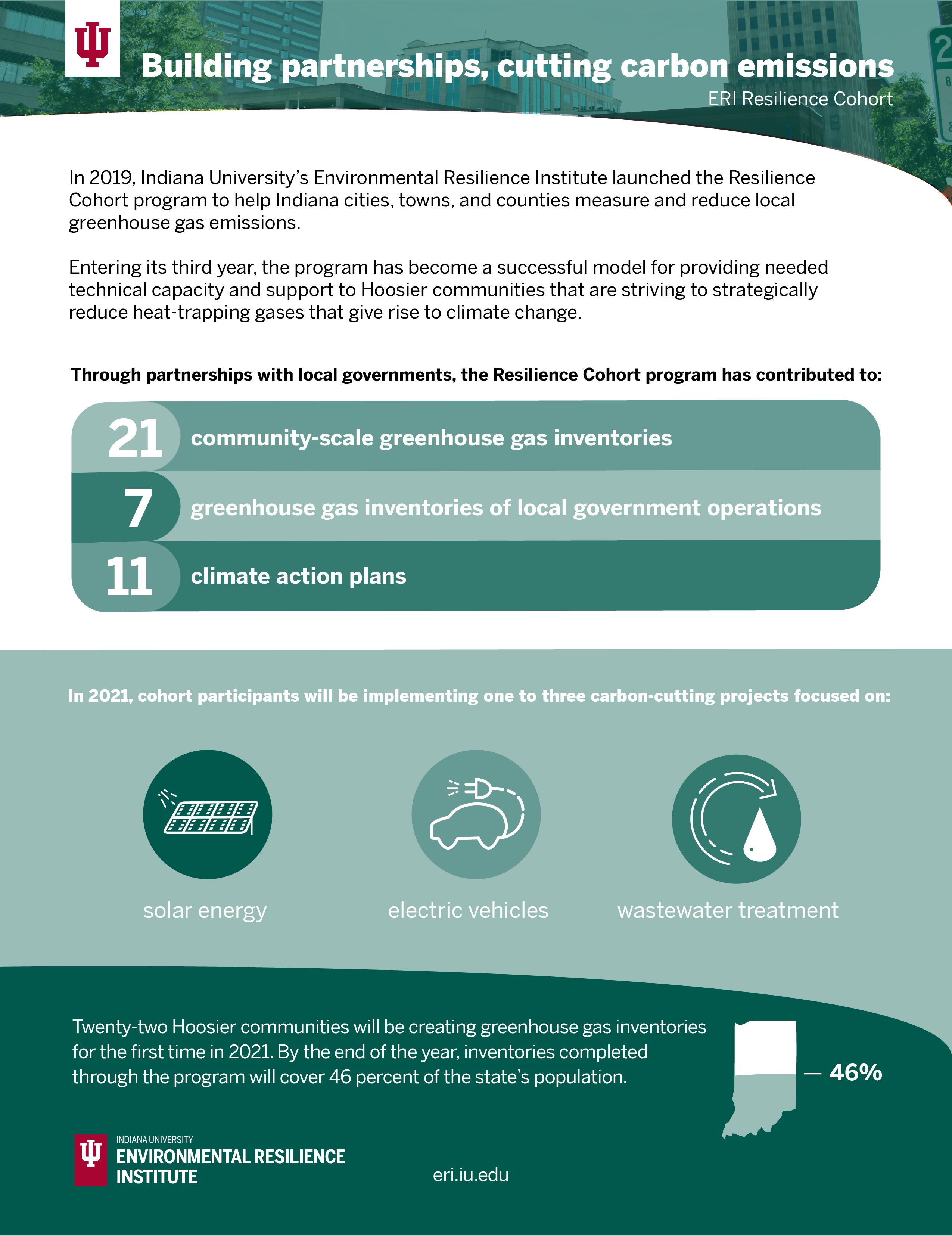BLOOMINGTON, Ind. – Through a partnership with Indiana University, nine Indiana cities and towns will be carrying out projects in 2021 to reduce local greenhouse gas emissions. The initiative represents the third stage of a program pioneered by IU’s Environmental Resilience Institute (ERI) to help Hoosier communities measure and manage heat-trapping gases that contribute to climate change.
Beginning in February, these Resilience Cohort cities will receive technical assistance, consulting, and training to implement one to three projects that support actions identified in community-wide greenhouse gas reduction plans developed under the program in 2020. Projects will focus on lowering barriers to solar development, creating electric vehicle-friendly communities, and efficiently treating wastewater, commonly one of the largest sources of emissions in local government operations.
Program participants in 2021 are Bloomington, Carmel, Elkhart, Fort Wayne, Gary, Goshen, Richmond, West Lafayette, and Zionsville.
“After a couple years of helping our cohort members gather data and create emissions reduction plans, we are excited to assist these local governments with tangible actions that reduce greenhouse gases,” said ERI Implementation Manager Andrea Webster. “Fully implementing climate action plans will take years of effort and sustained commitment, but some of the benefits, such as green jobs, lower utility bills, and improved air quality, can be realized much sooner. By prioritizing emissions reduction today, our Hoosier towns, cities, and counties are taking critical steps to combat climate change and create more livable, equitable, and resilient communities.”




